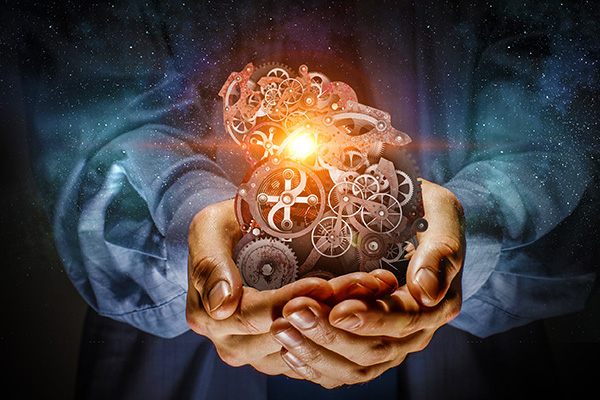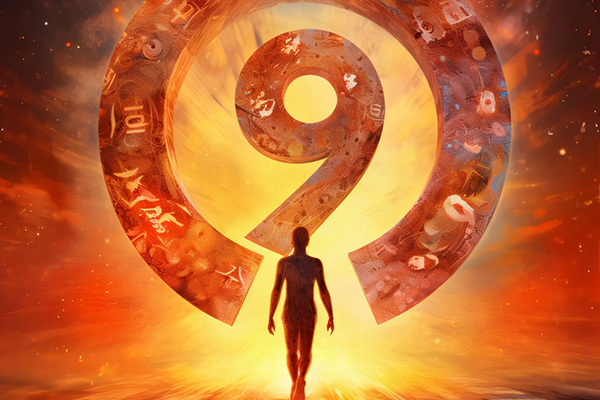life lessons
The Divine Spirit Beings Who Guide Our Life Journey
 We are all here for two important spiritual reasons – to serve and to learn. Each of us has a unique calling to fulfill and lessons to learn for karmic growth and soul evolution.
We are all here for two important spiritual reasons – to serve and to learn. Each of us has a unique calling to fulfill and lessons to learn for karmic growth and soul evolution.
The contributions we are meant to make and the lessons we are meant to learn are unique to each of us, and it’s up to us to uncover these aspects of our soul plan as we move through life.
Our guides and angels are a powerful resource in this process, yet they often go unnoticed or even unrecognized. These spirit beings work quietly behind the scenes to provide guidance, support, and protection as we navigate our life journey.
Their primary role is to guide us in fulfilling our mission to be of service, learn our karmic lessons, and to grow. If we don’t fulfill our purpose or learn our lessons, it will keep reappearing in our lives in different ways until we recognize, resolve, accept or own it.
Our guides and angels are always behind the scenes – patiently waiting for us to seek their wisdom and allow them to assist us in fulfilling our soul plan. By connecting with our spirit team, we open ourselves to personal growth and spiritual evolution.
Our spirit and angel guides are benevolent, non-physical beings who serve as intermediaries between the physical and spiritual worlds. Each of us has guides who are assigned to help us, whether we acknowledge their presence or not.
The Role Of Free Will In Psychic Readings
 Free will is a common theme in psychic readings. People often wonder how much of their life is predetermined and how much they control their own future, destiny and happiness.
Free will is a common theme in psychic readings. People often wonder how much of their life is predetermined and how much they control their own future, destiny and happiness.
The truth is that our free will not only shapes our daily lives – it’s also at the core of who we are as spiritual beings on a human journey. Free will is inescapable in our lives. This is why it is a central theme in almost every spiritual, religious, and wisdom tradition.
Whether it’s the concept of karma in Hinduism and Buddhism, the moral responsibility to follow divine guidance in Christianity and Judaism, or the pursuit of virtue and inner peace in Stoicism and Taoism, the concept of free will has shaped our understanding of personal fulfillment, spirituality, and destiny since the dawn of humanity.
While interpretations of free will may vary, its presence in our lives is undeniable and determines how we experience life – unless, of course, one subscribes to an atheistic worldview that denies any higher power or spiritual framework for our existence. But even atheists must admit that their lives are also very much determined by their own choices and decisions.
We all have the inner power to shape our lives through our thoughts, beliefs, choices and actions. But with this freedom comes a great responsibility: karma. The ability to create our reality and shape our future has ripple effects that affect not only our own lives, but everything and everyone in the universe.
One of the great questions surrounding free will is the relationship between fate and personal freedom. Many spiritual beliefs hold that our lives unfold according to a divine plan or cosmic blueprint. But if everything is predestined, ordained by a higher power, and happens by divine design, why do we have the ability to make our own life choices at all? Why do we have free will if our lives are already set in stone?
Extraordinary Evidence Of Reincarnation And Past Lives
 Have you ever felt an irresistible desire to visit a certain foreign country? Are you obsessed with a certain culture or have you always been fascinated by a certain period of history? Do you collect certain objects or paraphernalia that represent some kind of ancient spiritual tradition or esoteric practice?
Have you ever felt an irresistible desire to visit a certain foreign country? Are you obsessed with a certain culture or have you always been fascinated by a certain period of history? Do you collect certain objects or paraphernalia that represent some kind of ancient spiritual tradition or esoteric practice?
Our inexplicable interests and unusual hobbies often reveal much about our past lives.
Reincarnation is a topic that has captured the imagination of people since ancient times as a thought-provoking perspective on life, death, and the soul’s journey through many incarnations. Physical life is not a singular experience, but a cycle of rebirth, learning, and evolution.
The concept of reincarnation is the belief that our soul, or non-physical essence, is reborn into a new life after we die.
Central to Indian religions such as Hinduism, Buddhism, Jainism, and Sikhism, this spiritual concept is also found in certain streams of Judaism, among indigenous peoples of the Americas and Australian Aborigines, and in neo-pagan religions such as Wicca.
Various esoteric and mystical religious traditions, such as the Druze, Rosicrucians, Theosophy, and Anthroposophy, also incorporate ideas of reincarnation and the evolution of the soul.
In Kabbalah, the mystical branch of Judaism, reincarnation is also an important belief, referred to as gilgul neshamot, or the “cycle of souls.” Kabbalists teach that souls reincarnate to achieve spiritual redemption or tikkun, allowing individuals to correct mistakes from previous lives and fulfill their unique spiritual missions.
The Soul Secrets Of Your Known Name Number
 Numerology, the ancient mystical study of numbers and its influence on our daily existence, goes far beyond calculating the meaning of your birth date.
Numerology, the ancient mystical study of numbers and its influence on our daily existence, goes far beyond calculating the meaning of your birth date.
While many people are familiar with the concept of the life path number, which is derived from one’s birth date, few realize that their known name number also holds profound insights into their character, destiny, and spiritual journey.
Also known as the expression number, the calculation of this number is a core component of numerology used by practitioners to explore one’s personality, potential, and life path. Calculating this number can be eye-opening and transformative.
Metaphysically, names are not arbitrary; they are energetic vibrations that carry specific meanings and influences.
Your known name is the name you go by in everyday life, whether it is the name your parents gave you at birth or a nickname that has stuck with you over time.
The name you identify with carries an energetic signature that reveals much about your personality, your purpose, and the unique challenges or gifts you may encounter in this lifetime.
In the practice of numerology, the letters in your name are assigned numerical values based on a system known as the Pythagorean Number Table, where each letter corresponds to a number from 1 to 9. By adding up the numbers associated with the letters in your known name, you can uncover several key numbers that offer insight into your personality, strengths, and life purpose.
The Life Lessons We Learn From Children
 We can learn so much from children if we really pay attention and make the effort to see things from their perspective. Children embody a purity and wisdom that most adults have lost touch with in the complexities of daily life.
We can learn so much from children if we really pay attention and make the effort to see things from their perspective. Children embody a purity and wisdom that most adults have lost touch with in the complexities of daily life.
Many women in my age group, known as the “baby boomers,” were so busy trying to have a career and a family. We believed we could do it all, but in the process we missed many of the little things our children had to teach us. I was guilty of that.
But now that I have grandchildren in my life and have had the opportunity to take the time to see things differently, I have learned many profound lessons and insights from them over the years.
In their early years, children are still deeply connected to their spiritual origins and carry with them a high level of soul awareness that has not yet been clouded by the demands of physical life and the challenges of human existence.
This active spiritual awareness allows them to move through the world with an openness and purity that adults often struggle to maintain. Unencumbered by societal expectations, ego-driven desires, or fear of judgment, they are able to express love, joy, and creativity in their most authentic form.
Because they haven’t yet been conditioned by the limitations and constraints of the material world, children serve as powerful teachers, offering us glimpses of the spiritual truths that are easily forgotten in the hustle and bustle of adult life. They remind us of the infinite potential of our own souls and inspire us to reconnect with the deeper, more meaningful aspects of our being.
The Day The Angels Saved My Life
 I know now that my angels kept me from going to work that day for a reason. I have also learned since that I still had work to do that was important enough to keep me safe from injury or worse.
I know now that my angels kept me from going to work that day for a reason. I have also learned since that I still had work to do that was important enough to keep me safe from injury or worse.
I will never forget the day of the highway accident. It was September 3, 1999, and I had asked to be excused from work, which I never did. I was an office manager at a tool shop, working under a very arrogant accountant who had control issues with the employees.
I had worked there for several years without ever asking for extra time off, but he said no. He didn’t think I should have the day off because it was already a long weekend for us in Canada. The Labor Day holiday would have given me a four-day weekend instead of a three-day weekend.
He then threatened that I would lose my job if I took the day off because he didn’t approve of it and had no intention of changing his mind. But my gut was telling me very strongly that I simply could not go to work that day, I had to take it off. I didn’t know why at the time, I just knew I had to stay home.
So I did the only thing I could think of since my job security was in jeopardy – I went over his head to the owner and got the day off anyway! I later thanked the angels that I did that.
The accident happened about the same time I usually drive through the area on my way to work. I worked in Windsor, Ontario and lived in Valetta, which is almost an hour away. Every day I would get on the Queensline exit, east of Tilbury, and take the 401 to Oldcastle, where the 401 meets the highway. I have to admit I didn’t always drive the speed limit back then. I shudder to think what would have happened to me if I had driven my usual route to work that day!
